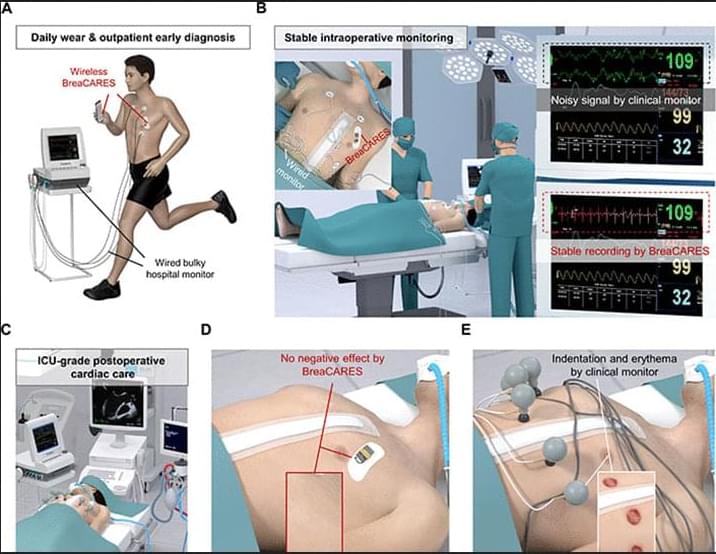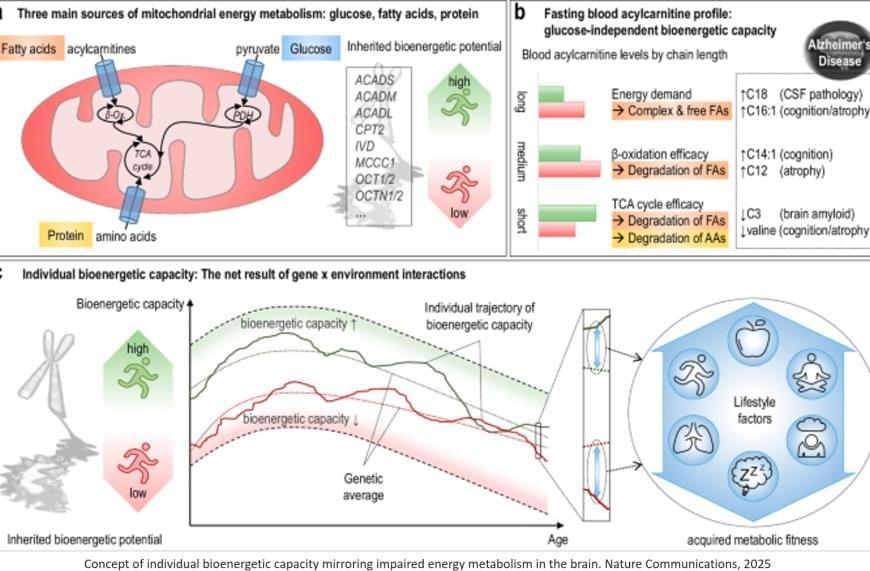The researchers turned to a group of molecules called acylcarnitines, which are associated with declining cognition and breaking down or metabolizing fats and proteins for energy. To test if high acylcarnitine levels in the blood could predict who’s at risk of developing Alzheimer’s, the researchers used data from a large-scale study called the Alzheimer’s Disease Neuroimaging Initiative.
“It was fascinating,” the author said. “Dividing research participants into groups based on their specific acylcarnitine levels highlighted people with more severe Alzheimer’s disease and others with fewer symptoms.” This led the researchers to define a bioenergetic clock based on acylcarnitines—how old a person’s metabolism acts, compared to actual age. Higher bioenergetic age is linked to higher acylcarnitine levels, worsened Alzheimer’s pathology, cognitive decline and brain atrophy.
The researchers also quantified cognitive decline using a common test called the mini-mental state examination, on which a score below 24 out of 30 points indicates impairment. They found that people with low acylcarnitine levels to begin with declined more slowly, losing about 0.5 points less per year than people with high acylcarnitine levels. The benefit is on par with the Alzheimer’s drug lecanemab.
To some degree, a person’s bioenergetic clock ticks forward at a rate determined by their genetics, but having a healthy lifestyle—for example, eating a plant-based diet and exercising —can help keep acylcarnitine levels low, which means a younger bioenergetic age, the author explained.
They went on to identify a subgroup of participants, about 30% of the Alzheimer’s Disease Neuroimaging Initiative, with older bioenergetic age but favorable genetic background. These individuals may benefit more from early lifestyle interventions designed to decrease their bioenergetic age and potentially delay or prevent the onset of Alzheimer’s.
Moving forward, the senior author hopes to home in on the lifestyle interventions most effective for lowering bioenergetic age. For example, eating a low-carb diet may help maintain metabolic health, but just how low would carbohydrate consumption have to be for a person to see benefits?









